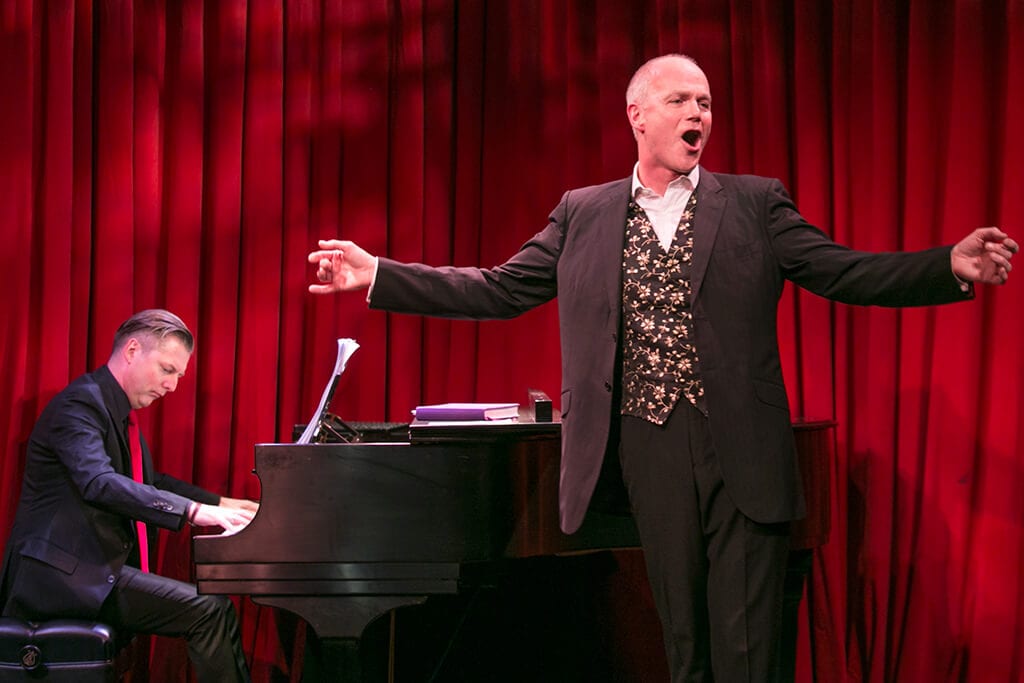We enter the third floor cabaret at 59 East 59. The lights are subdued, the small tables covered with white table cloths. We are allowed to take our drinks into this cramped room. The grand piano is on a platform in the corner surrounded by red velvet curtains. Simple. No frills.
We are about to experience Simon Green and David Shrubsole’s Life is for Living, Conversations with Coward. The duo return to 59E59 for this production. Mr. Green, vibrant in a smart waistcoat and jacket sings and reads; Mr. Shrubsole accompanies him on the grand piano. Their promise: to fuse theatricality, music and conversations, including Ivor Novello, Jeremy Nicholas’s satire, Maya Angelou’s wisdom, Irving Berlin’s lyricism and George Gershwin’s syncopation. An ambitious promise to be crammed into 70 minutes! Not so simple a task.
Both are perfectly adept and entertaining performers. Mr. Green sings Coward in his own way not trying to imitate “The Master,” as he has referred to him. But attempting this extraordinary fusion unfortunately results in a hodgepodge of songs and often unrelated albeit interesting excerpts from Coward’s diaries and letters. We are not even quite sure why “life is for the living” taken from Gilda’s exhortation as she embraces the Artist and the Writer in Design for Living is actually part of the show’s title. Well, Green and Shrubsole are indeed very lively.
The evening becomes a vehicle for Mr. Green’s vivacious and entertaining singing rather than an evening enlightening us about Coward, yet, I must add, skimming the surface of intentions delightfully. The musical adaptation of Maya Angelou’s Human Family is an inexplicable inclusion in this evening’s set list. Is the audience expected to interpolate the grander personal or social allusion of this American poet to Coward’s legacy?
One of the highlights of the evening is not a Coward song at all but Me. Green’s very moving renditions of Irving Berlin’s Always and Gershwin’s Our Love is Here to Stay.
A standout exception of the “fusion” intention was I Went to a Marvellous Party. Stanzas are interspersed with diary extracts that reveal Coward’s complex ironic nature. Now perhaps this is the kind of conversation as promised, a subtle conversation between the composer’s public persona as brilliant lyricist and his personal misgivings about the state of the human race as well as his own vulnerability. Certainly, it superbly casts light on Coward’s genius for unpredictable contradiction. “…the human race is cruel, idiotic, sentimental, ungrateful, ugly…and the occasional discovery of an isolated exception is a sudden brazil nut in what you know to be five pounds of vanilla creams.”
What bookends this show is a quote from Lord Mountbatten about the multi-faceted Coward as a man combining the talents of novelist, librettist, composer, singer, dancer, comedian, tragedian, producer, director, cabaret artist and TV star. A cleverly phrased quote worthy of Coward’s many achievements. Ahh, well, the best-laid plans of singer and composer can often go awry and still be enjoyable.

